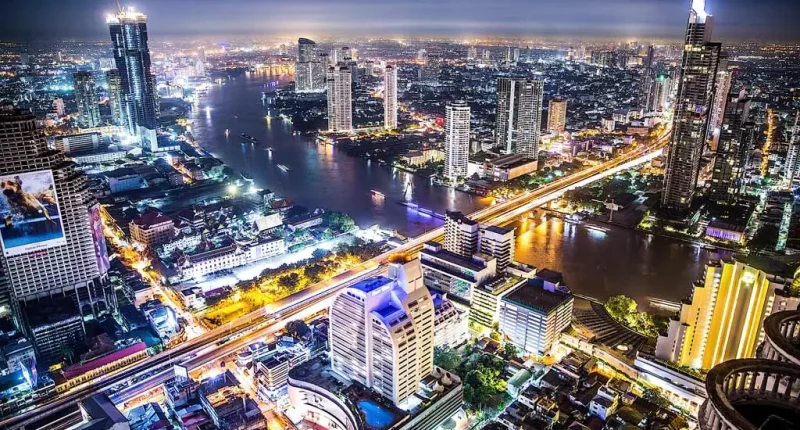Thailand is one of the most popular travel destinations in Southeast Asia, known for its stunning beaches, vibrant culture, ancient temples, and delectable food. Before you embark on your journey to the “Land of Smiles,” there are several important things you should know to ensure a smooth and enjoyable experience. Here’s a comprehensive guide to help you prepare.
Visa Requirements for Thailand
1. Do You Need a Visa?
Most travelers to Thailand do not need a visa for short stays, especially if they are from countries like the United States, United Kingdom, Australia, Canada, and most European countries. Citizens of these countries can stay for up to 30 days without a visa if arriving by air, or up to 15 days if arriving via land borders.
2. Visa Extensions
If you plan to stay longer, you can apply for a 30-day extension at any Thai immigration office. For stays longer than 60 days, you may need to apply for a tourist visa before arriving in Thailand. Always check the latest visa regulations before your trip as they can change.
Best Time to Visit Thailand
1. Weather and Seasons
Thailand has a tropical climate, with three main seasons: hot, cool, and rainy. The best time to visit is during the cool season, from November to February, when temperatures are comfortable and rainfall is minimal. The hot season, from March to May, can be sweltering, while the rainy season, from June to October, brings heavy showers but also fewer tourists and lower prices.
2. Festivals and Holidays
Thailand is known for its vibrant festivals, so planning your trip around them can add a unique cultural experience. Songkran (Thai New Year) in April and Loy Krathong in November are two of the most famous celebrations. However, note that popular festivals may bring large crowds and higher accommodation prices.
Cultural Etiquette and Local Customs
1. Respect for Religion and Monarchy
Thailand is a deeply religious country, with Buddhism being the dominant faith. Always show respect when visiting temples by dressing modestly (covering your shoulders and knees) and removing your shoes before entering. Additionally, the monarchy is highly revered in Thailand. Avoid making any disrespectful comments or gestures regarding the royal family as it is considered a serious offense.
2. The Wai Greeting
The traditional Thai greeting, known as the “wai,” involves pressing your palms together in a prayer-like position and bowing your head slightly. It’s a sign of respect and is commonly used in everyday interactions. Be sure to return the gesture if someone greets you with a wai.
3. Street Etiquette
Thailand is a friendly and polite country, but it’s important to be mindful of your behavior in public. Avoid raising your voice or causing a scene, as Thais value calmness and “saving face.” Additionally, it’s considered disrespectful to touch someone’s head or point your feet at people or religious objects.
Health and Safety Tips
1. Vaccinations and Health Precautions
Before traveling to Thailand, consult your healthcare provider about recommended vaccinations, such as hepatitis A, typhoid, and tetanus. Depending on where you plan to visit, you might also need antimalarial medication. It’s also advisable to carry mosquito repellent, as dengue fever can be a concern in some areas.
2. Staying Safe
Thailand is generally a safe country for tourists, but like any other destination, it’s important to stay vigilant. Be cautious of scams, particularly in popular tourist areas, and always use official transportation services. Also, when renting motorbikes or jet skis, make sure you have proper insurance coverage and inspect the equipment beforehand.
Transportation in Thailand
1. Getting Around
Thailand has a well-developed transportation system, with options ranging from tuk-tuks and taxis to buses and trains. In major cities like Bangkok, the BTS Skytrain and MRT Subway are convenient ways to navigate the city. For longer distances, domestic flights and overnight buses are popular options.
2. Traffic and Driving
If you plan to rent a car or motorbike, keep in mind that traffic in Thailand can be hectic, especially in cities like Bangkok. Always drive defensively, and be aware that traffic laws are not always strictly enforced. Renting a motorbike is a popular way to explore islands and rural areas, but make sure you have an international driver’s license and wear a helmet.
Money and Budgeting
1. Currency and Payment Methods
The currency in Thailand is the Thai Baht (THB). While credit cards are widely accepted in hotels and larger restaurants, cash is still king in many smaller establishments and markets. ATMs are readily available, but they often charge a fee for foreign cards, so it’s a good idea to withdraw larger amounts to minimize fees.
2. Tipping Culture
Tipping is not customary in Thailand, but it’s appreciated in tourist areas. In restaurants, leaving loose change or rounding up the bill is common. For services such as massages or guided tours, a small tip of 20-50 THB is a nice gesture.
Conclusion
Before traveling to Thailand, it’s important to familiarize yourself with the country’s visa requirements, cultural etiquette, health precautions, and transportation options. By being well-prepared and respectful, you’ll have a smooth and enjoyable experience in this beautiful country. Whether you’re exploring bustling cities, serene temples, or tropical beaches, Thailand offers something for every type of traveler.








